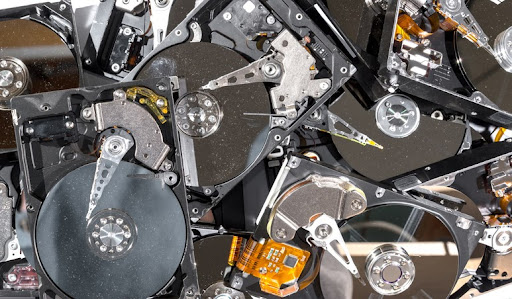Can your business function without computers? If it can, you’re running a unique operation. Computers are entirely essential for most organizations. Your business might own more computers than it has employees. Most of those machines will probably reach the end of their lifespans within the next few years. And every one of them probably contains sensitive company data that you’re obligated to protect. Knowing how to dispose of old computers securely is a critical part of a comprehensive data security plan.
How Not to Dispose of Old Computers

It probably goes without saying that disposing of an old computer by throwing it into a dumpster isn’t a great idea. You immediately lose your ability to control what happens to your data. And data security issues aside, electronic waste should be kept out of landfills. Your company’s computers contain valuable precious metals that could be recovered and resold instead of thrown away. Electronics are also made with toxic chemicals that leach into the groundwater and soil over time, which can be dangerous for the surrounding community.
What about donating old computers that still work to charities or other community organizations? It’s easy to see how this could seem like a win-win for business owners. Maybe there’s a group near you that distributes used computers to job training programs or to students from poor families. By donating your old devices, you get someone to take those obsolete computers off your hands and your business gets the tax and PR benefits of making a significant charitable contribution.
No PR benefits, however, are worth dealing with the consequences of a data breach, though. You have no idea who will eventually end up with your company’s old computers, and what kind of digital detective skills they’ll have. Wiping the hard drive or overwriting the existing data won’t necessarily destroy it, so it’s just too much of a data security risk to turn your business’s old computers over to new owners, unless the hard drive is replaced.
How to Dispose of Old Computers the Right Way
Securely disposing of your business’s old computers always starts with the same first step: removing the hard drive from every computer. This is the only way to be confident that you’re not exposing the company’s private data when giving up ownership of the device itself. Once hard drives are removed, having them shredded by a data destruction service ensures that any stored data is permanently destroyed. Shredding hard drives is the most effective way to securely dispose of them.
Without hard drives, your company’s old computers don’t retain any memory of your data. They also aren’t really usable unless new drives are installed. Used machines in this state probably aren’t going to have much if any resale value, so the best way to dispose of them is generally going to be recycling. Recycling is always the ultimate goal for e-waste. Most of those metal, glass and even plastic components that make up computers and other electronics can be recovered and reused over and over again.
Businesses have a few options for how to recycle old computers. Your municipality or a local electronics recycling vendor may host one-day e-waste recycling events, but there may not be one scheduled anytime soon. Many manufacturers and electronics retailers like Best Buy also offer computer take-back programs. Manufacturers with take-back programs typically accept only their own products, which may have to be shipped to them; details vary by brand and by location. Companies that offer these programs promise that they will responsibly recycle the devices they collect (though consumers can’t be sure that this always happens).
If your business still wants to donate its old computers to support charitable organizations, there may be ways to do this even after you’ve pulled out the hard drives for shredding. Assuming your used computers are still in good shape, having new hard drives installed may be much cheaper than buying new computers, so a group that really needs these donations might be willing to accept devices without drives. Your business could even make a donation to help cover the costs.
These solutions can be convenient ones when you’re disposing of just one or two computers. But for businesses that go through a lot of computer equipment, or replace many computers at the same time, it can be more efficient to cut out the middlemen and have a recycler pick up a load of old computers. Northeast Data Destruction is often called in to help in these scenarios. A business that has upgraded all of its computers will need to dispose of dozens or even hundreds of old devices at once. We destroy the hard drives and responsibly recycle the rest of the machines, so business owners don’t have to do a thing beyond arranging for secure pickup of their old computers.
Figuring out how to dispose of old computers is just one of a hundred data security questions that might come up for business leaders. The consequences of a data breach are too serious to ignore. The future of your business relies on your ability to protect your own data and your customers’ data. Northeast Data Destruction helps clients protect data of all kinds. Our commercial shredders permanently destroy hard drives, documents, ID badges and anything else your business might use to store data. Our sister company, Miller Recycling, can also help your business manage its electronics recycling needs. What questions do you have about how to dispose of old computers securely? Contact me today!
